School Committee vote opens ARHS track project to grass playing field
|
Published: 01-25-2024 11:43 AM
Modified: 01-25-2024 3:56 PM |
AMHERST — Reorienting and expanding the high school track and rebuilding its interior playing field is in some question after the Amherst Regional School Committee this week narrowly rescinded a $1.5 million borrowing authorization. Committee members then replaced it with a borrowing authorization for $1.5 million that allows options for the playing field and guarantees the 25-year-old track will be resurfaced, stressing that they remain committed to moving forward with the project.
A divided committee voted 5-4 on Tuesday to repeal the original borrowing authorization for the $4.74 million project and followed that with a unanimous vote for the new borrowing authorization, which removes a requirement that the interior playing field be synthetic turf, a key point that backers argue will give the project more flexibility should it advance.
The vote leaves a final decision open until Nov. 30, at which time the school district may have sufficient money to do a more elaborate project that has included fundraising by the Hurricane Boosters and includes reorienting the track to north-south, expanding it from six to eight lanes and rebuilding the interior playing field, with either grass or synthetic turf, and assorted other improvements.
The complicated rescind-and-replace idea was championed by Amherst representative Jennifer Shiao, who said this would give flexibility for the entire project, particularly as to the playing surface of the field.
“The motion we’re discussing is opening up options so that it could be either artificial turf or grass,” Shiao said, noting the original vote forced the playing field to be synthetic, despite some objections from residents and boards of health. “We’re setting ourselves up for success now by opening up more options.”
Interim Superintendent Doug Slaughter confirmed that due to the vote taken a year ago, even if money were in hand, he couldn’t borrow for a natural playing surface. He was referencing a vote the committee took last year that refined the original authorization on March 15, 2022.
But the new debt authorization comes with its own risks, Amherst representative Irv Rhodes said, observing that all four member towns will now get to again have a say, in possible votes at Town Meetings and the Town Council, which may further delay a comprehensive project.
“It leaves us with nothing,” Rhodes said.
Article continues after...
Yesterday's Most Read Articles
 More than 130 arrested at pro-Palestinian protest at UMass
More than 130 arrested at pro-Palestinian protest at UMass
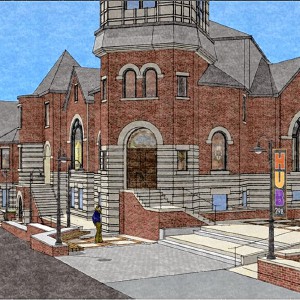 Public gets a look at progress on Northampton Resilience Hub
Public gets a look at progress on Northampton Resilience Hub
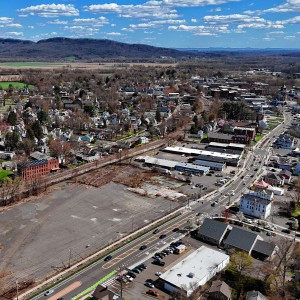 Northampton bans auto dealerships near downtown; zone change won’t affect Volvo operation on King Street
Northampton bans auto dealerships near downtown; zone change won’t affect Volvo operation on King Street
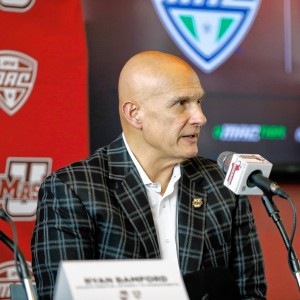 UMass basketball: Bryant forward Daniel Rivera to be Minutemen’s first transfer of the offseason
UMass basketball: Bryant forward Daniel Rivera to be Minutemen’s first transfer of the offseason
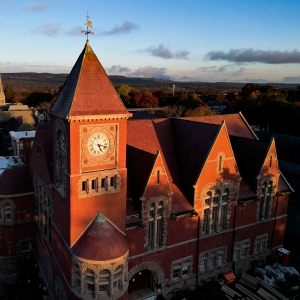 Town manager’s plan shorts Amherst Regional Schools’ budget
Town manager’s plan shorts Amherst Regional Schools’ budget
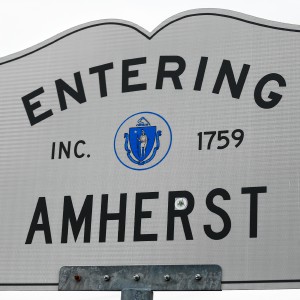 Police respond to alcohol-fueled incidents in Amherst
Police respond to alcohol-fueled incidents in Amherst
He also disagreed with Shiao’s contention that success is likely. “This is not going to be quick. This is not a magic bullet,” Rhodes said.
In Tuesday’s vote to rescind the borrowing authorization, Shiao was joined by fellow Amherst representative Bridget Hynes, Pelham representative William Sherr, Shutesbury representative Anna Heard and Leverett representative Tilman Wolf. Voting against were Rhodes and fellow Amherst representatives Deb Leonard and Sarah Marshall and Pelham representative Sarahbess Kenney, who chairs the committee.
The panel then voted unanimously on the replacement borrowing authorization.
“I’d rather have something than nothing, but I’m not optimistic about where this is going,” Rhodes said.
Marshall said that $957,500 in Community Preservation Act money appropriated by Amherst for the project was for the preferred option with artificial turf, and that the committee’s votes jeopardize that money.
“I would not want to rescind the borrowing authorization that exists without knowing what’s going to be left on the table when we increase the flexibility,” Marshall said.
Hynes, though, said the concern from other towns over synthetic turf has meant the project is short around $240,000 in contributions from member towns, and it would be better to provide them options for paying for a grass playing surface.
SLR Consulting of Springfield is currently evaluating the site, considering the field surface and installation techniques, and providing other options, as well as less expensive cost estimates, before the school district goes out to bid.
Shiao said removing the requirement of artificial turf would make the project $1 million cheaper, based on Weston & Sampson estimates from 2019.
Leonard pushed back on this, though, noting that town officials can’t commit to maintaining a grass field on the site, and that artificial turf may be a necessity, no matter its cost.
Marshall, too, said it may be preferable to just resurface the track. Without an artificial turf field, she said, improvements to the playing field may not be possible. Kenney said an artificial turf field is the only way to alleviate the issue of overuse of grass that has worn down and is blamed for injuries to student athletes.
Rhodes said committee members should not assume that the project cost will go down without artificial turf.
“The question for us to determine to ask ourselves: Is there going to be sufficient amount of money to do this project, even at the lowest possible cost?” Rhodes said.
Heard said SLR needs to provide different cost estimates so committee members are better informed on what design route to take.
“It would be very very helpful to have at least some number estimate from them as early as possible so that we don’t waste their time, or our time, to create designs that aren’t going to work,” Heard said.
Scott Merzbach can be reached at smerzbach@gazettenet.com.

 State Senate budget funds free community college for all
State Senate budget funds free community college for all ‘We can just be who we are’: Thousands show support for LGBTQ community at Hampshire Pride
‘We can just be who we are’: Thousands show support for LGBTQ community at Hampshire Pride Doors open at Tilton Library’s temporary home at South Deerfield Congregational Church
Doors open at Tilton Library’s temporary home at South Deerfield Congregational Church Area property deed transfers, May 2
Area property deed transfers, May 2
